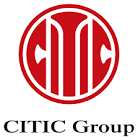CITIC

Total capacity of implemented projects
50 - 250 MW
Countries of projects presence
1
CITIC is a leading Chinese conglomerate that operates in various sectors, including banking, finance, real estate, infrastructure, and energy. The company was founded in 1979 as China International Trust and Investment Corporation and has since grown into a global player with operations in more than 100 countries.
In recent years, CITIC has been actively pursuing decarbonisation and renewable energy initiatives as part of its corporate sustainability strategy. The company recognizes the urgent need to reduce carbon emissions and transition to a low-carbon economy to mitigate the impacts of climate change.
One of CITIC's key initiatives in this regard is its corporate energy program, which aims to improve energy efficiency, reduce greenhouse gas emissions, and promote renewable energy adoption across its operations. The program includes a range of measures such as energy audits, energy management systems, and employee engagement activities to raise awareness and encourage behavior change.
CITIC has also been exploring corporate power purchase agreements (PPAs) as a way to increase its use of renewable energy. PPAs are long-term contracts between a buyer and a renewable energy provider, whereby the buyer agrees to purchase a certain amount of renewable energy at a fixed price over a specified period. By entering into PPAs, CITIC can secure a stable and predictable source of renewable energy while also supporting the growth of the renewable energy industry.
In 2020, CITIC signed a 15-year PPA with a wind power project in Inner Mongolia, which will supply 300 million kilowatt-hours of clean energy annually to the company's operations in Beijing. The project is expected to reduce CITIC's carbon emissions by 300,000 tons per year, equivalent to taking 65,000 cars off the road.
CITIC is also investing in renewable energy projects directly. In 2020, the company announced plans to build a 100 MW solar power plant in the Ningxia Hui Autonomous Region, which will be one of the largest solar projects in the region. The project is expected to generate 120 million kilowatt-hours of electricity annually and reduce carbon emissions by 100,000 tons per year.
In addition to its renewable energy initiatives, CITIC is also committed to reducing its carbon footprint through energy efficiency measures. The company has set a target to reduce its energy consumption per unit of revenue by 3% annually and has implemented various measures to achieve this goal. For example, CITIC has upgraded its lighting systems, HVAC systems, and building envelopes to improve energy efficiency in its buildings.
CITIC is also exploring innovative technologies to further reduce its carbon emissions. The company has partnered with a Chinese start-up to develop a carbon capture and utilization (CCU) project, which aims to capture carbon dioxide emissions from CITIC's steel production and convert them into useful products such as methanol and synthetic fuels. The project has the potential to reduce CITIC's carbon emissions by up to 30%.
Overall, CITIC's decarbonisation and renewable energy initiatives demonstrate the company's commitment to sustainability and its role in addressing the global challenge of climate change. By investing in renewable energy, improving energy efficiency, and exploring innovative technologies, CITIC is positioning itself as a leader in the transition to a low-carbon economy.